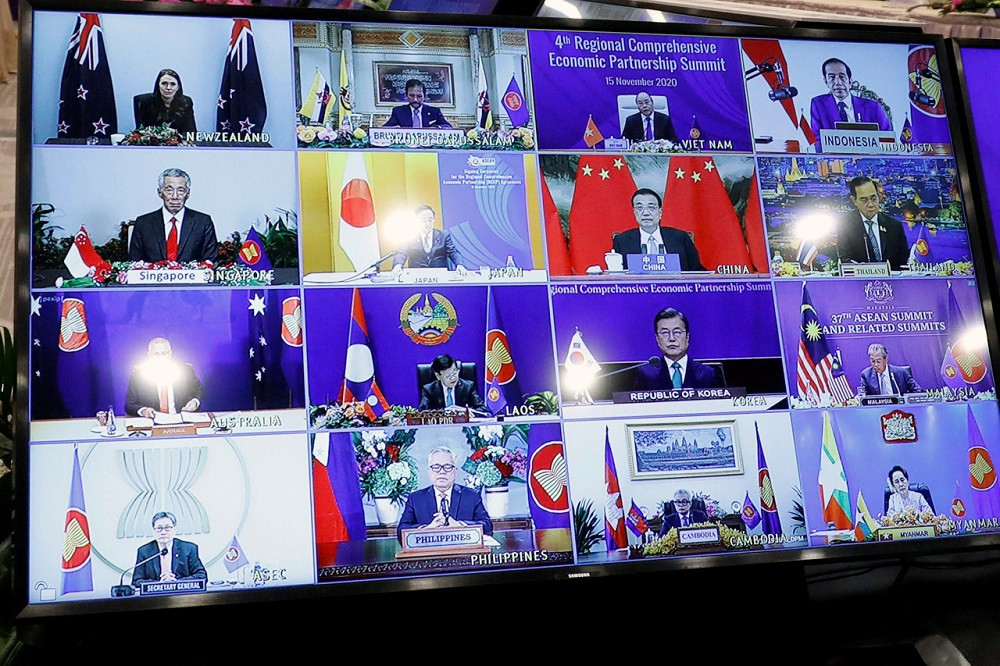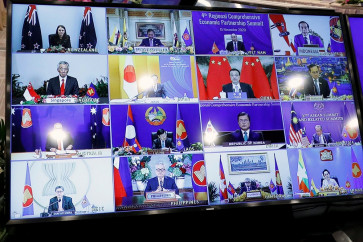Popular Reads
Top Results
Can't find what you're looking for?
View all search resultsPopular Reads
Top Results
Can't find what you're looking for?
View all search resultsIndonesia’s G20 presidency amid rising trade tensions
The benefit of the RCEP is that even though it doesn’t call for liberalization at the same level, scope or depth of commitment as the CTPP, its impacts on the economies of member countries, and indeed on the world economy, will be massive.
Change text size
Gift Premium Articles
to Anyone

Indonesia’s Group of 20 presidency in 2022 is crucial for the global recovery from the health and economic crises wrought by COVID-19. With rising protectionism and increasing trade tensions around the world, how prepared is Indonesia to address these issues?
In February 2020, the United States and China signed the Economic and Trade Agreement – the so called “Phase One” trade deal – which many have predicted will only create further trade diversions in global trade. And indeed, the US-China trade (now including technology) tensions have been escalating instead of decreasing, putting pressure on smaller economies to choose between the two global powers.
Even after the agreement was signed, Beijing’s dual circulation plan promotes self-reliance, indigenous innovation and settling more trade deals in Renminbi. At the same time, the US strategy is equally (or more so) escalating tensions with its policies of realigning supply chains by “friend-shoring”, accompanied by policies mandating that key technologies must be produced at home or by designated US allies. The largest and most innovative US electric vehicle company has even started controlling its own supply chains.
So, what solutions can Indonesia offer during its G20 presidency?
Let’s start by reviewing Indonesia’s foreign trade policy, where it stands, and what it can offer the G20. East Asia, including Southeast Asian countries grouped as ASEAN (including Indonesia), has been achieving high economic growth based on trade and investment. ASEAN has been very active in promoting trade and investment as well as forming trade agreements to facilitate this, including the ASEAN Free Trade Area (AFTA) in 1992 and the ASEAN+1 FTAs with its main trading partners, which was mostly concluded in 2010.
Recently, ASEAN and its five main trading partners concluded the Regional Comprehensive Economic Partnership (RCEP). The RCEP came into effect on Jan. 1 as it has already reached the quorum with ratification by 11 member countries: Brunei, Cambodia, Laos, Thailand, Vietnam, Singapore, and all non-ASEAN signatories (Australia, China, Japan, Korea and New Zealand). Indonesia has not ratified the agreement yet.
The RCEP is the largest economic bloc in the world. Even without India, in 2021, the countries in the RCEP accounted for 31 percent of the world’s population, 31 percent of global gross domestic product, 27 percent of trade and 33 percent of foreign direct investment (FDI).



















